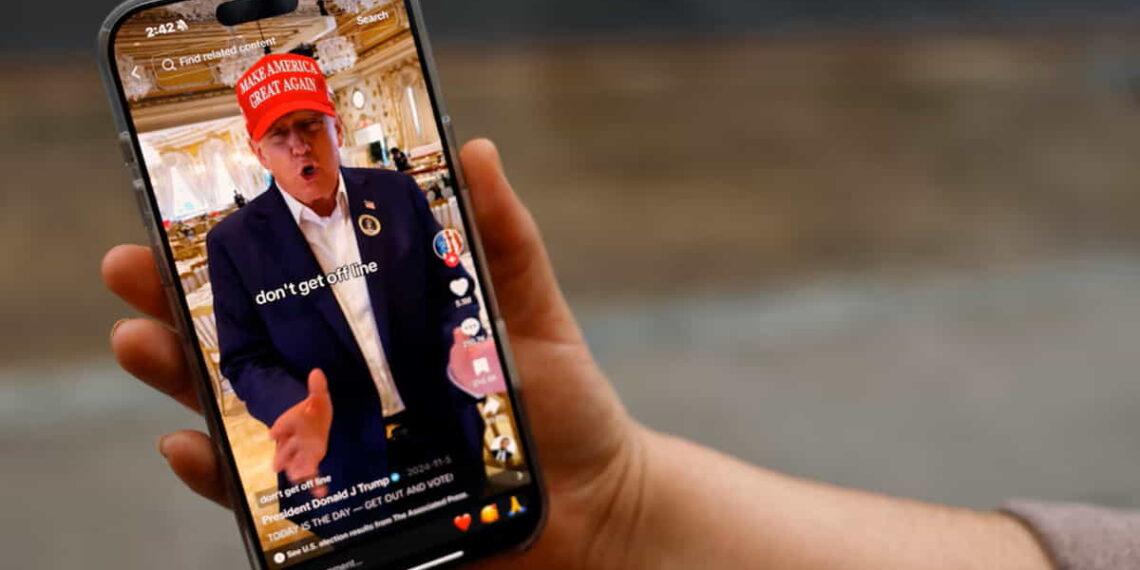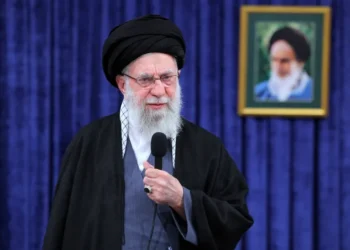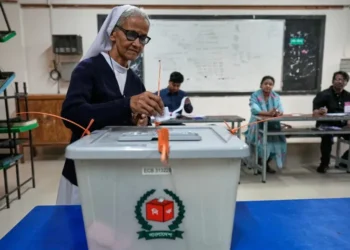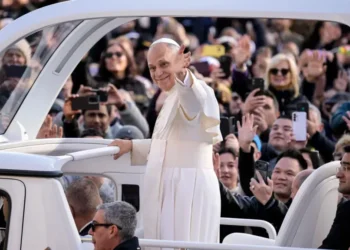TikTok Restores Service Amid U.S. Legal Challenges
Key Developments:
- Trump’s Executive Order: President-elect Donald Trump plans to issue an executive order on Monday extending the time before the TikTok ban takes effect.
- 50% U.S. Ownership: Trump proposes a joint venture with 50% American ownership to secure TikTok’s operations in the U.S.
- Opposition Within GOP: Republican senators Tom Cotton and Pete Ricketts oppose any temporary reprieve for TikTok.
TikTok’s Restoration Process
TikTok began restoring its services on Sunday after Trump announced plans to revive the app’s access in the U.S.
“Frankly, we have no choice. We have to save it,” Trump stated during a rally, emphasizing the app’s importance to over 170 million American users and 7 million small businesses. Hours before the rally, TikTok acknowledged the developments, stating: “As a result of President Trump’s efforts, TikTok is back in the U.S.”
The app’s return comes after a temporary shutdown on Saturday due to a law banning it on national security grounds. TikTok’s website began functioning for some users, but as of Sunday evening, the app remained unavailable for download on U.S. app stores.
TikTok’s Message to Users
TikTok issued a statement expressing gratitude to Trump for “providing necessary clarity and assurance to our service providers.” The company credited the administration with helping maintain service for millions of users and small businesses reliant on the platform.
U.S.-China Relations
Trump’s intervention to save TikTok marks a significant shift in his stance. In 2020, he sought to ban the app over concerns about data misuse by its Chinese parent company, ByteDance. However, recent developments indicate a more collaborative approach, with Trump stating he has “a warm spot in my heart for TikTok,” citing its role in winning over young voters.
Meanwhile, the Chinese Embassy in Washington criticized the U.S. for suppressing TikTok, vowing to safeguard its interests. The tensions underline broader issues in U.S.-China relations, with Trump planning to impose tariffs on China while seeking direct dialogue with its leadership.
Legal and Political Backlash
Republican senators criticized the move to delay the TikTok ban. In a joint statement, Senators Cotton and Ricketts said, “Now that the law has taken effect, there is no legal basis for any kind of ‘extension’ of its effective date. For TikTok to return, ByteDance must sever all ties with Communist China.”
The law banning TikTok, passed overwhelmingly by Congress, grants the administration authority to ban or seek divestitures of Chinese-owned apps. This unprecedented move against a major social media platform has sparked debates about data security and economic implications.
Economic and Business Impact
Marketing firms dependent on TikTok have scrambled to develop contingency plans. Web searches for “VPN” spiked as users sought alternative access to the platform. Meanwhile, concerns grew over TikTok Shop orders and the app’s e-commerce operations.
ByteDance’s other apps, including CapCut and Lemon8, were also affected, remaining offline in the U.S. on Saturday. Tech giants Apple and Google did not respond to inquiries about the app store removals.
Future Prospects
Trump’s proposed joint venture could include major U.S. stakeholders. Reports suggest interest from former Los Angeles Dodgers owner Frank McCourt and discussions about a potential sale to billionaire Elon Musk, though ByteDance denied such talks. Analysts estimate TikTok’s U.S. operations could be worth as much as $50 billion.
Perplexity AI, a U.S. search engine startup, has also expressed interest in merging with TikTok’s U.S. operations, proposing a new entity combining other partners.
Conclusion
TikTok’s restoration highlights the complex interplay of technology, politics, and international relations. As Trump’s administration works toward a resolution, the app’s future remains uncertain amid legal challenges, political opposition, and evolving U.S.-China dynamics.
This article was rewritten by JournosNews.com based on verified reporting from trusted sources. The content has been independently reviewed, fact-checked, and edited for accuracy, neutrality, tone, and global readability in accordance with Google News and AdSense standards.
All opinions, quotes, or statements from contributors, experts, or sourced organizations do not necessarily reflect the views of JournosNews.com. JournosNews.com maintains full editorial independence from any external funders, sponsors, or organizations.
Stay informed with JournosNews.com — your trusted source for verified global reporting and in-depth analysis. Follow us on Google News, BlueSky, and X for real-time updates.














